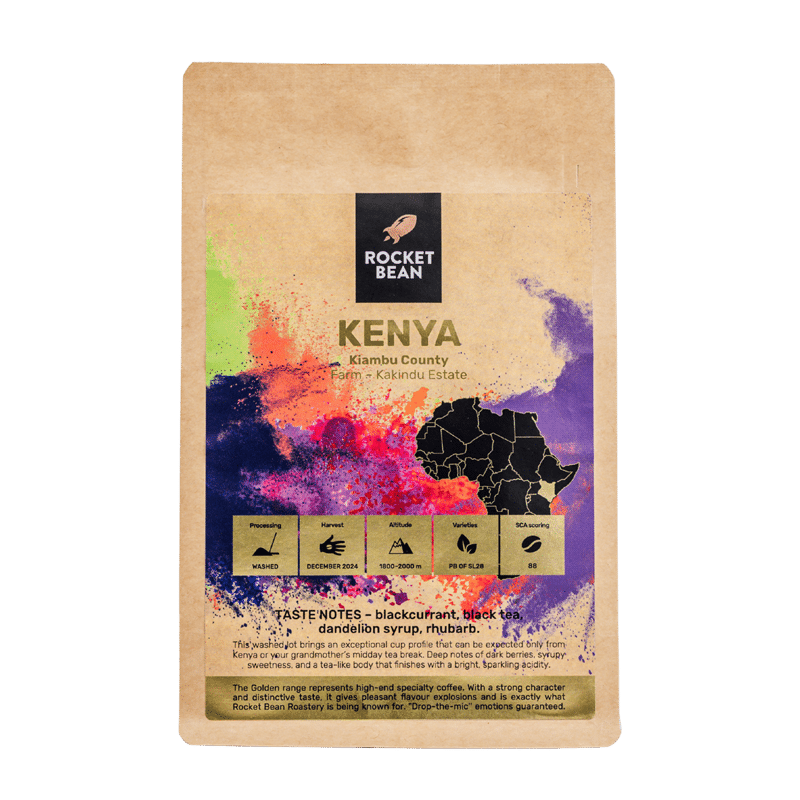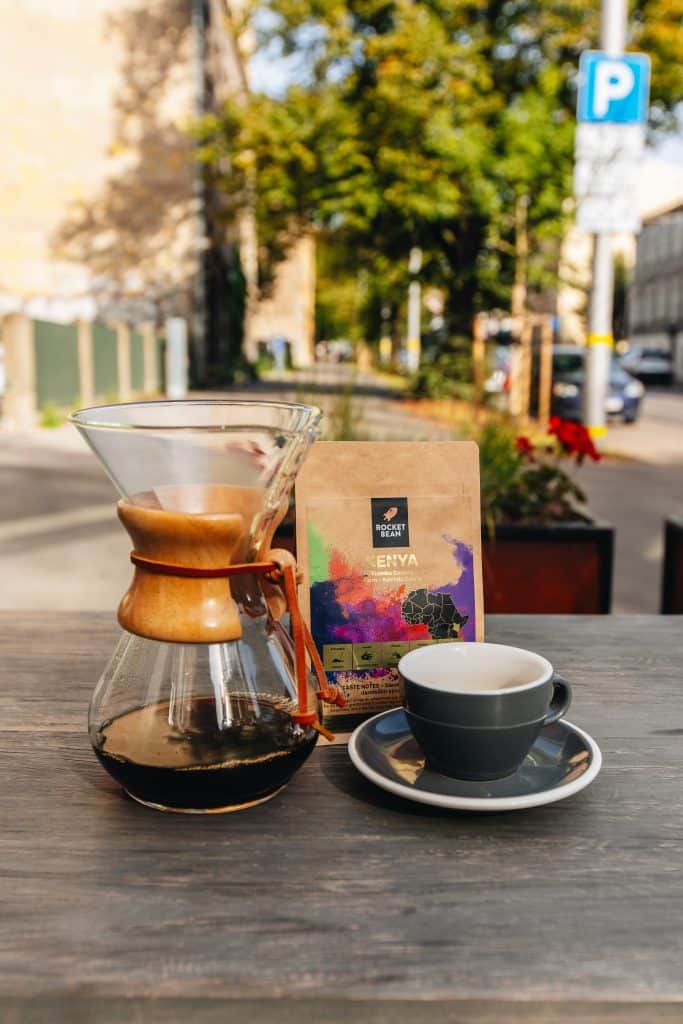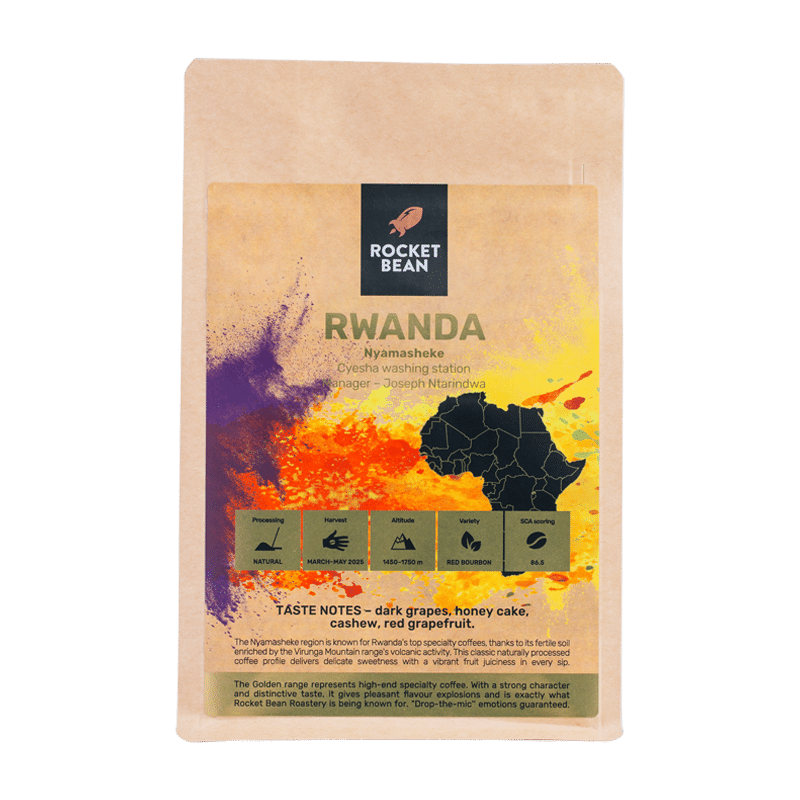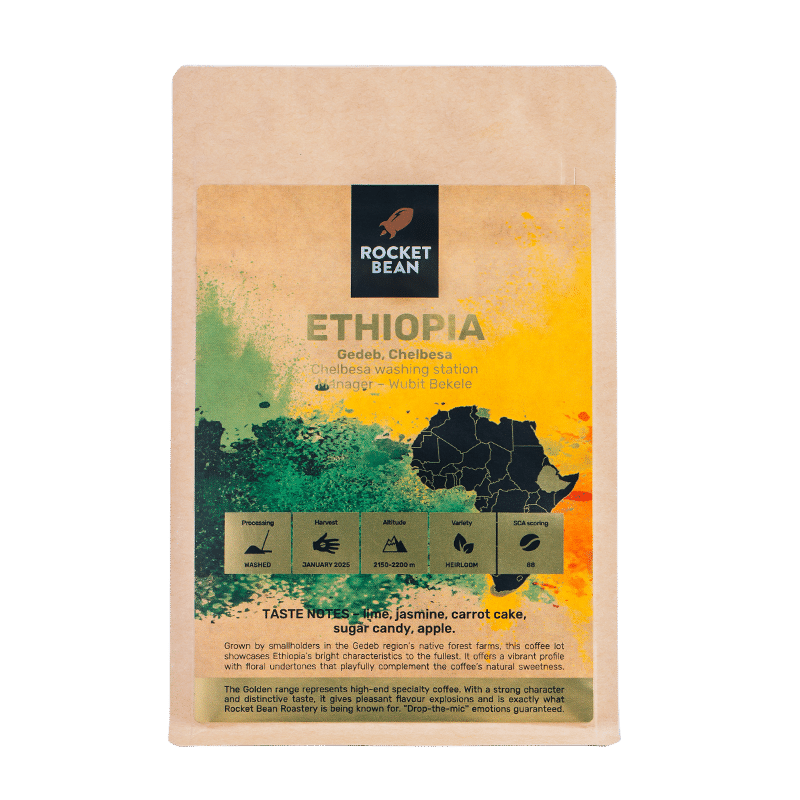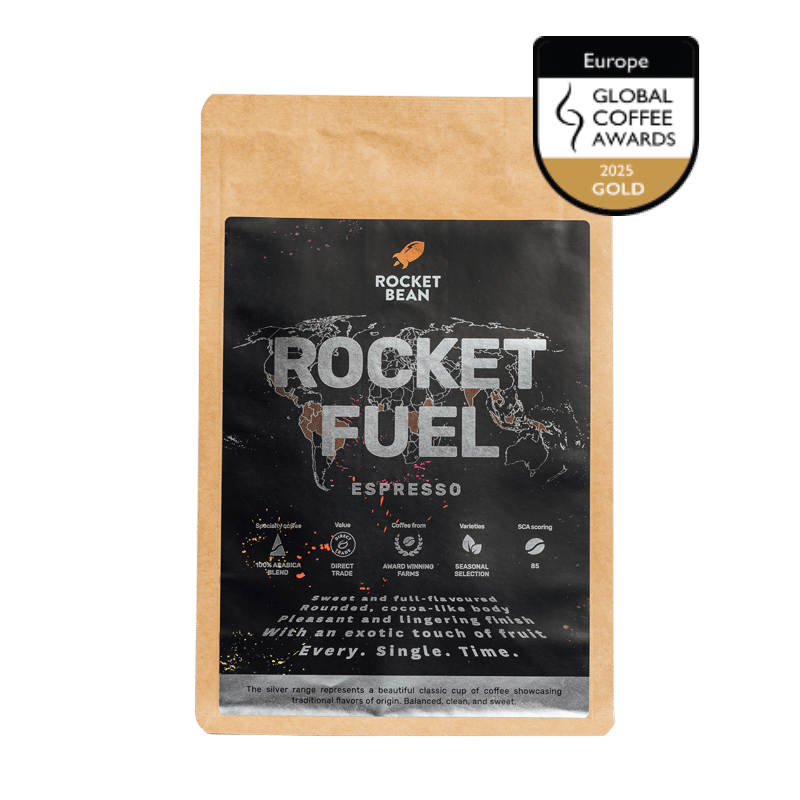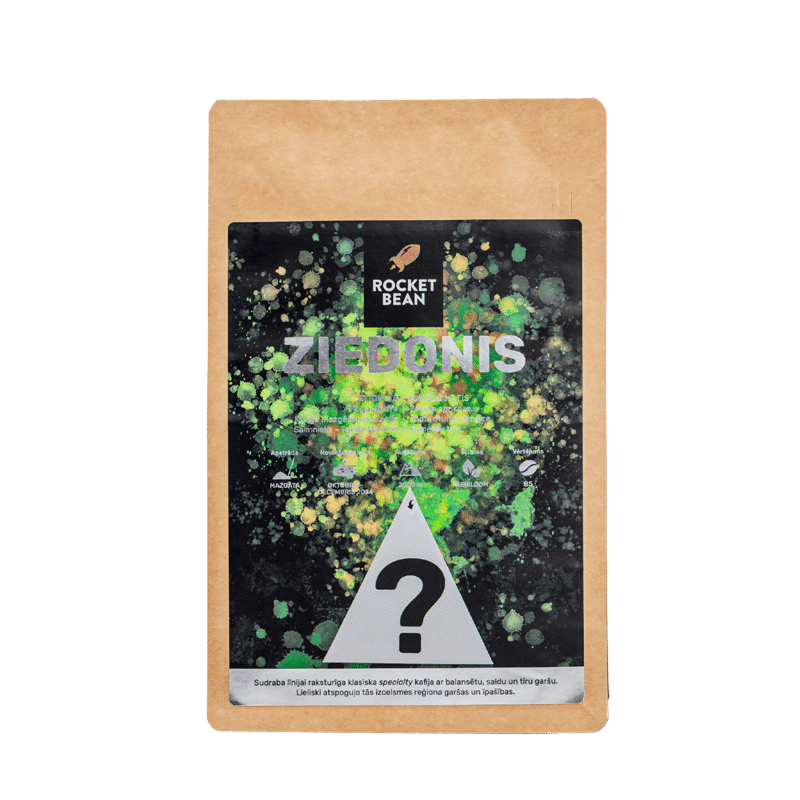Kenya | Kiambu, Washed
filter
- Country: Kenya
- Region: Kiambu County
- Taste and Arome: Blackcurrant, black tea, dandelion syrup, rhubarb
16,00 €
Processing
Washed
Harvest
December 2024
Altitude
1800 - 2000 m
Variety
PB of SL28
Scoring
87
This washed lot brings an exceptional cup profile that can be expected only from Kenya or your grandmother’s midday tea break. Deep notes of dark berries, syrupy sweetness, and a tea-like body that finishes with a bright, sparkling acidity.
Origin
Kenya, characterized by its volcanic red soil and elevated altitudes, is renowned for a coffee flavor profile that consistently distinguishes itself during cupping assessments. The inception of coffee cultivation in Kenya can be traced back to the late 1800s when it was introduced by French missionaries. The variety they introduced was Bourbon, originally sourced from an island known as Bourbon Island (now referred to as La Réunion island), and subsequently propagated throughout the nation. This Bourbon variety eventually gave rise to the renowned SL28 and SL34 cultivars, developed in the 1930s for their exceptional cup quality and resistance to drought.
The Region
North of Nairobi lies Kiambu County, a region deeply rooted in Kenya’s coffee history. Coffee estates were first established here by British settlers in the early 20th century, laying the foundation for what would become one of the country’s key coffee-producing areas. After Kenya gained independence, ownership of these estates shifted to local farmers. While Kiambu once led the way in large-scale coffee production, the spread of Nairobi’s suburbs and rising land prices have gradually reduced estate farming in the area. Even so, the estates that remain continue to operate with a wealth of knowledge passed down through generations. The natural conditions in Kiambu make it an excellent place to grow Arabica coffee. The combination of nutrient-rich volcanic soil, consistent sunshine, high elevations of up to 2,000 meters, and cool nighttime temperatures all work together to produce slow-ripening coffee cherries. This slow maturation is key to the vibrant acidity and complexity that define the region’s coffee.
Variety
The SL28 variety stands as a shining achievement from Scot Laboratories, renowned for its exceptional cup profile. Their mission was to develop and maintain robust coffee varieties capable of withstanding drought and coffee tree diseases. SL28 is celebrated for its resilience in the face of drought and its bright, juicy flavor profile. This popularity extends beyond Kenya’s borders, with experimental cultivation in countries such as El Salvador, Panama, Nicaragua, and more.
Processing:
This coffee is processed using the traditional fully washed method that’s been a cornerstone of Kenyan coffee production for decades.
After picking, ripe cherries are sorted and then de-pulped to remove the outer skin. The beans, still covered in mucilage, are then fermented in water tanks between 12 to 48 hours. This step helps break down the mucilage so it can be easily washed off. Once fermentation is complete, the beans, still in their husk, are cleaned in long water channels that separate them by density. Heavier beans sink to the bottom and are set aside, as they tend to be of higher quality. The clean, graded beans are then soaked briefly in fresh water before being moved to raised drying beds. There, they dry in the sun for up to three weeks. During this time, they’re turned regularly and covered when needed to protect them from moisture or intense direct sunlight.
